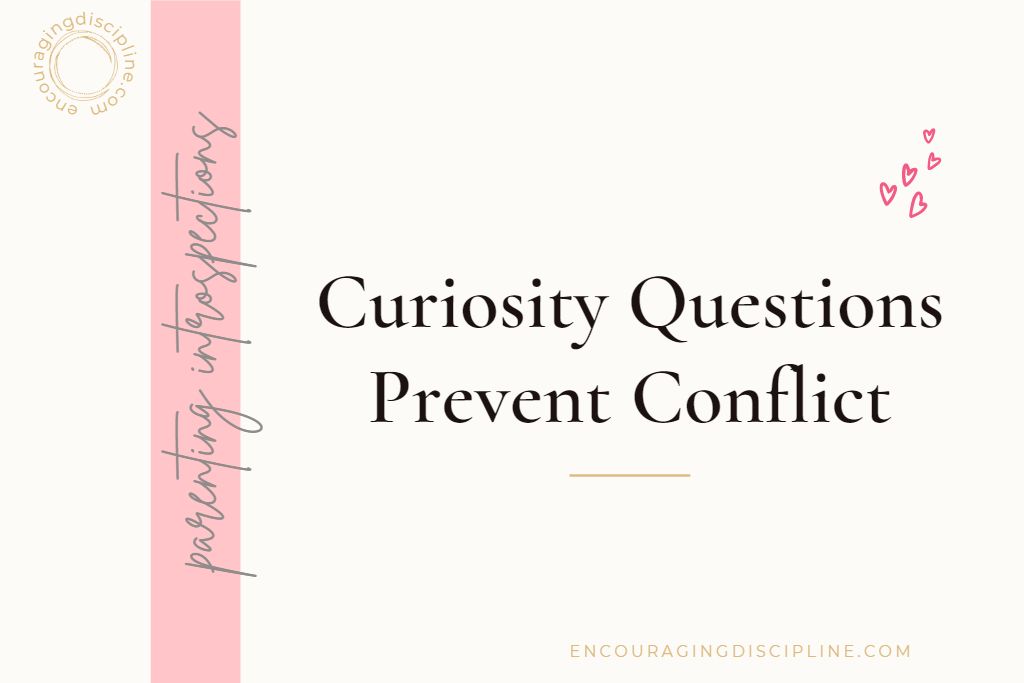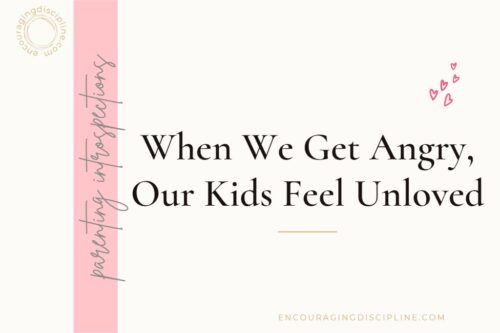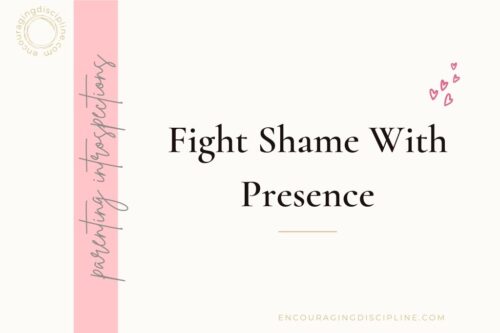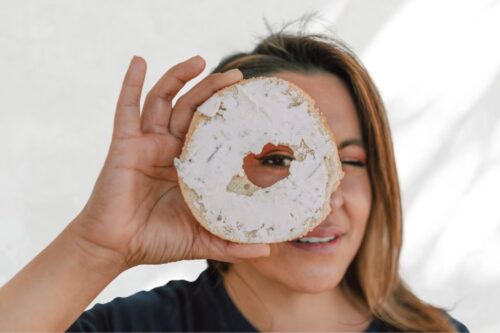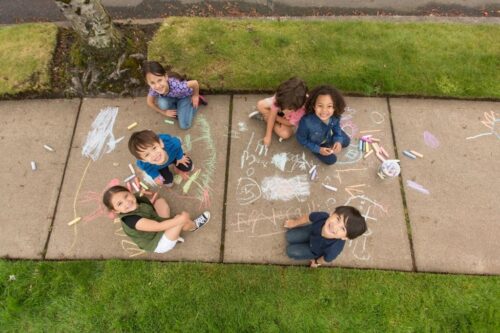Curiosity Questions Prevent Conflict
Instead of rushing to conclusions and having reactions that lead to conflict, we can ask curiosity questions to learn more and problem-solve together with our children.
Have you noticed how our minds are really good at gathering information and assessing situations? This is a great feature! But it can also get us into trouble when we aren’t aware of how much information our mind actually has when making these inferences. Let me give you an example.
My daughter: “Mama, I did something really bad and I’m afraid to tell you.”
All my life I tended to have very quick reactions. At that moment I could feel my heart starting to race and my mind going to the darkest imaginable scenarios. What I felt that I wanted to do at that moment is go into attack.
But the fact that she added, “I’m afraid to tell you” helped me to stop my initial reaction.
Whenever we are faced with uncertainty, our mind tends to fill in the missing information. It gets some information, and it infers the rest. And, because of an evolutionarily developed negativity bias, the inferred information is mostly negative and scary. And it’s also tied to our own fears and insecurities.
Our reaction that follows is always alarmist and unhelpful. It has a sense of urgency and a high probability of error. It is never to what is happening in front of us, but to the story that our mind created.
With lots of learning and practice, I became aware of this human tendency, so it’s something that I try to remind myself of every time I interact with other people.
At that moment I also felt grateful that my daughter had the inspiration to remind me that she was afraid to tell me. Whenever my kids share with me how they are feeling, it triggers a warning alarm in my mind. It activates my empathy. So, as a side note, this is a good skill to teach your kids. And it’s also why we teach them to talk about how they’re feeling instead of attacking the other person when trying to be assertive.
I tried to pause my catastrophic thoughts just a little. I couldn’t stop them entirely, I still had this urgent feeling that something terrible might have happened and I might have to take immediate action to repair it. But I took a deep breath and asked a curiosity question.
I reassured my daughter that I wouldn’t get mad and that I could only help her if I knew the truth. She told me she broke the seal off a new vitamin bottle. She was playing with it, examining how the foil was swelling and deflating when she pushed on it until it broke.
She confessed that she thought what she had done was really bad because I had told her not to open the new bottle until the old one was finished.
The real, missing information was very different from the story that my mind had been trying to infer and construct based on the initial limited information.
My anxiety instantly dissipated, and I hugged my daughter.
I realized that our kids have little or no life experience to help them know what’s good or bad, what the consequences of different actions are, and which consequences are more desirable than others.
This story also helped me realize that our kids need our understanding and patient guidance. They need us to teach them which consequences are more important to try to avoid, which are okay to try, and which we can let go of. There is no need to stress over everything with the same intensity.
The story I shared today is a very simple example of how curiosity questions prevented conflict between my daughter and me. But this very simple concept can be applied to situations that are a lot more complex.
So my invitation for you today is to try to notice when your mind is trying to draw conclusions based on a limited amount of information. Instead of allowing it to fill in the gaps, ask curiosity questions to get the missing information about the situation. Once you have all the information, then you can make a decision as to what your next step will be. You will find that this reduces your anxiety a lot and it can prevent some serious conflict between you and your child.

